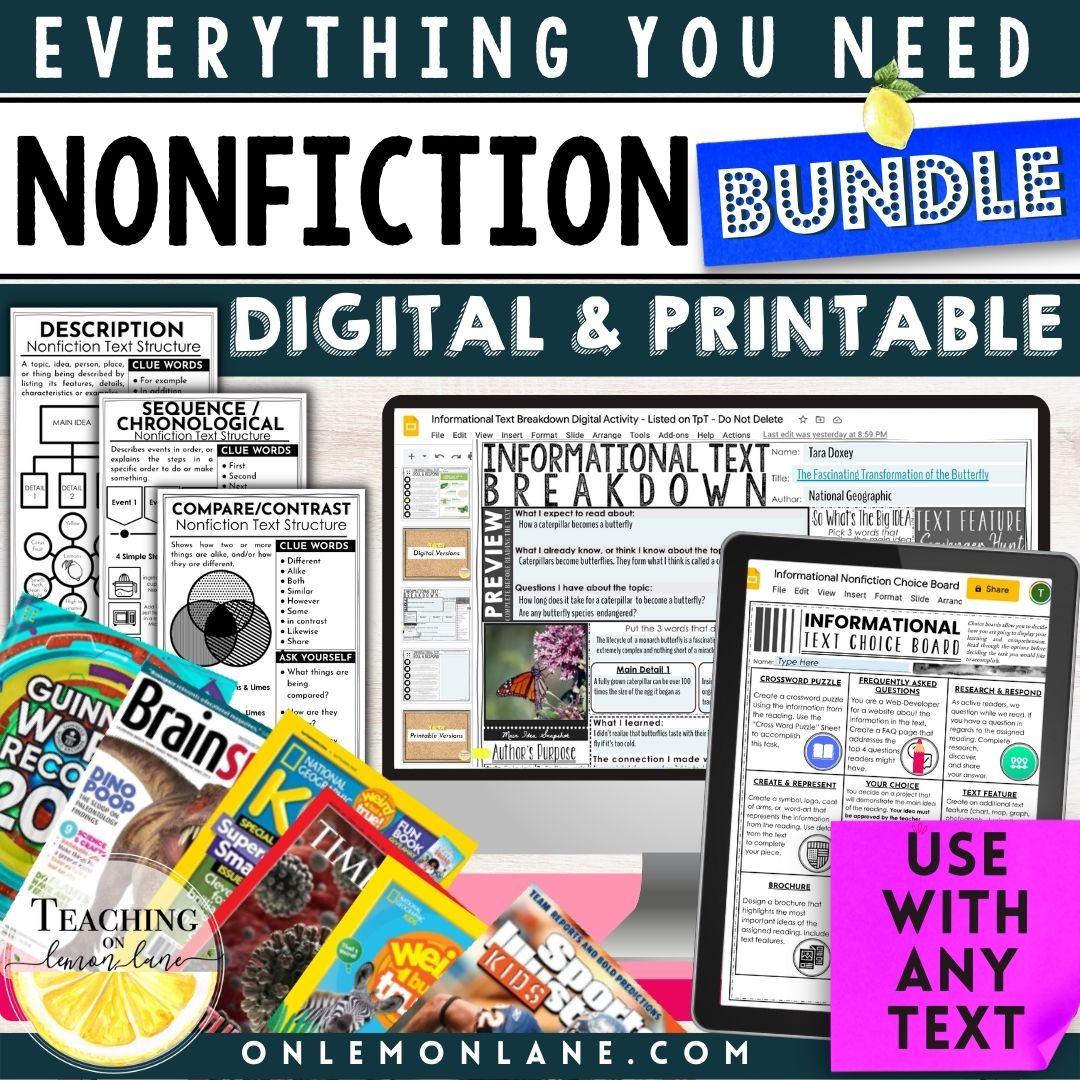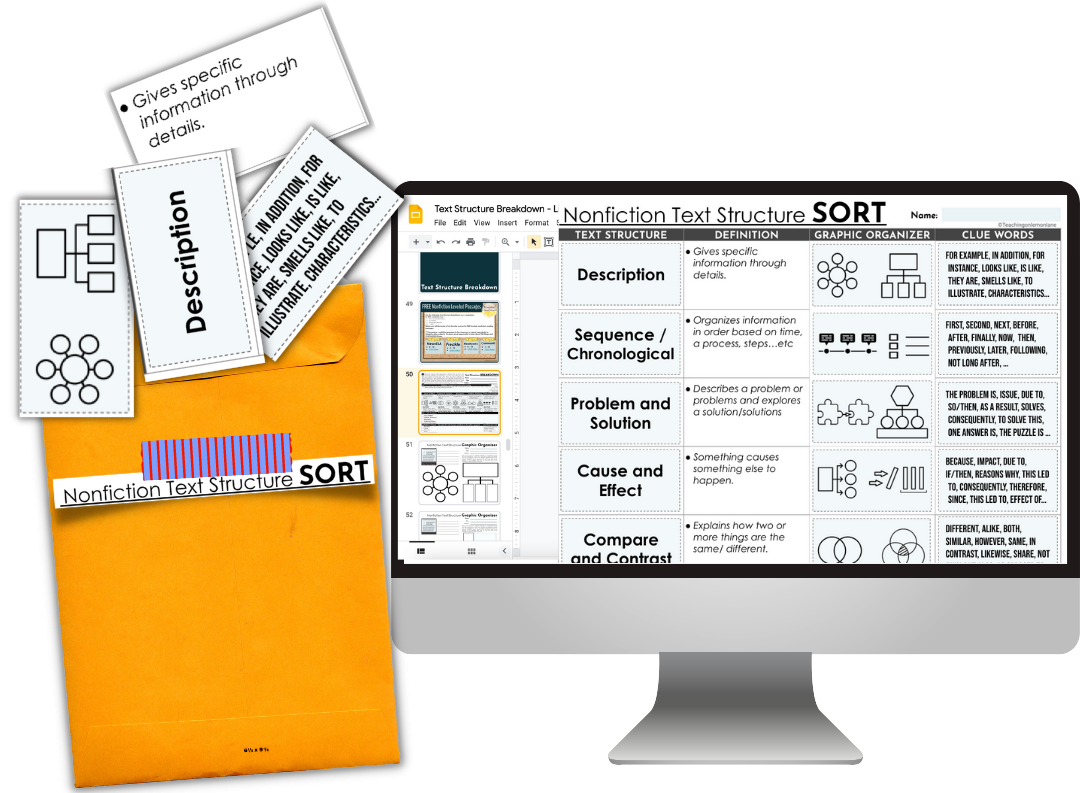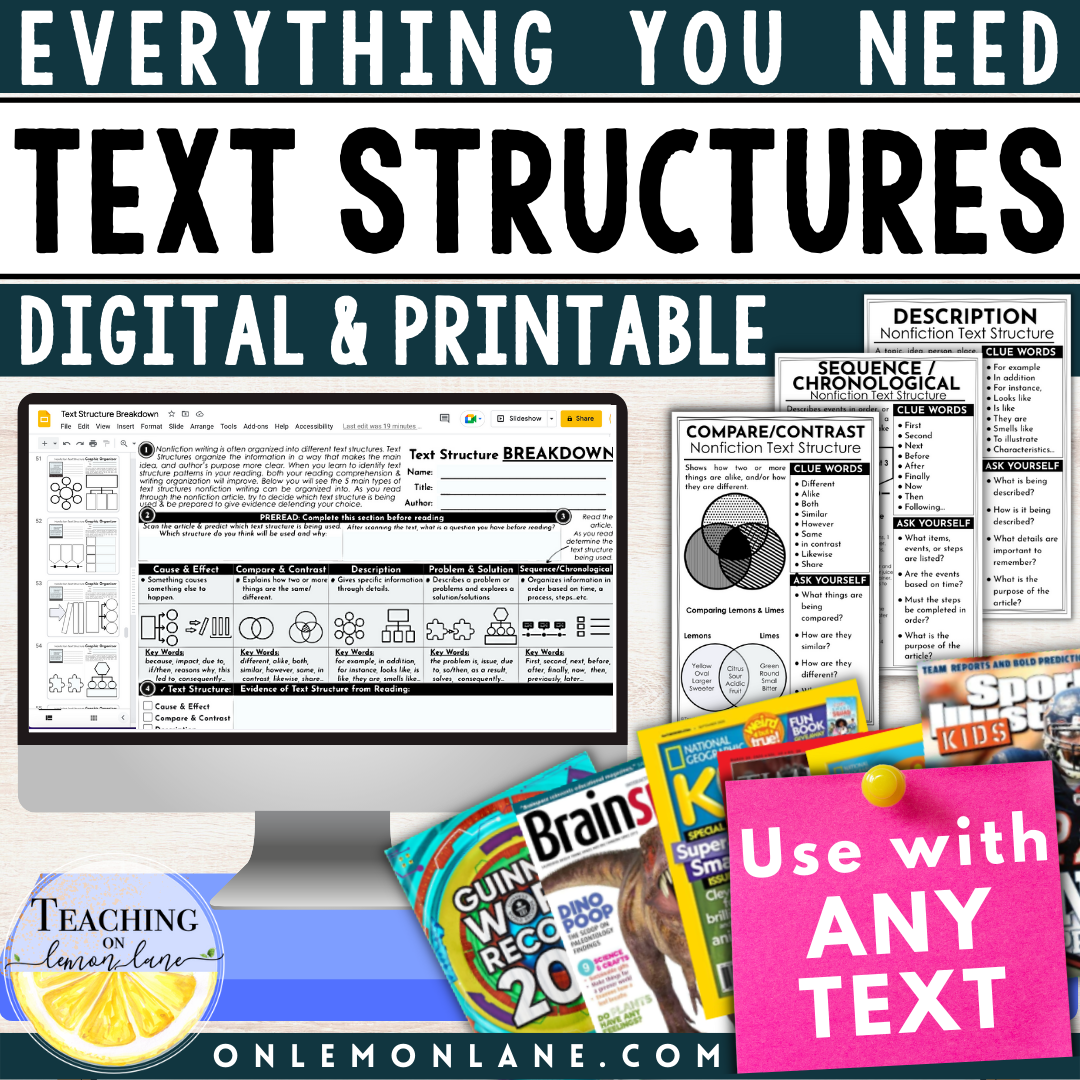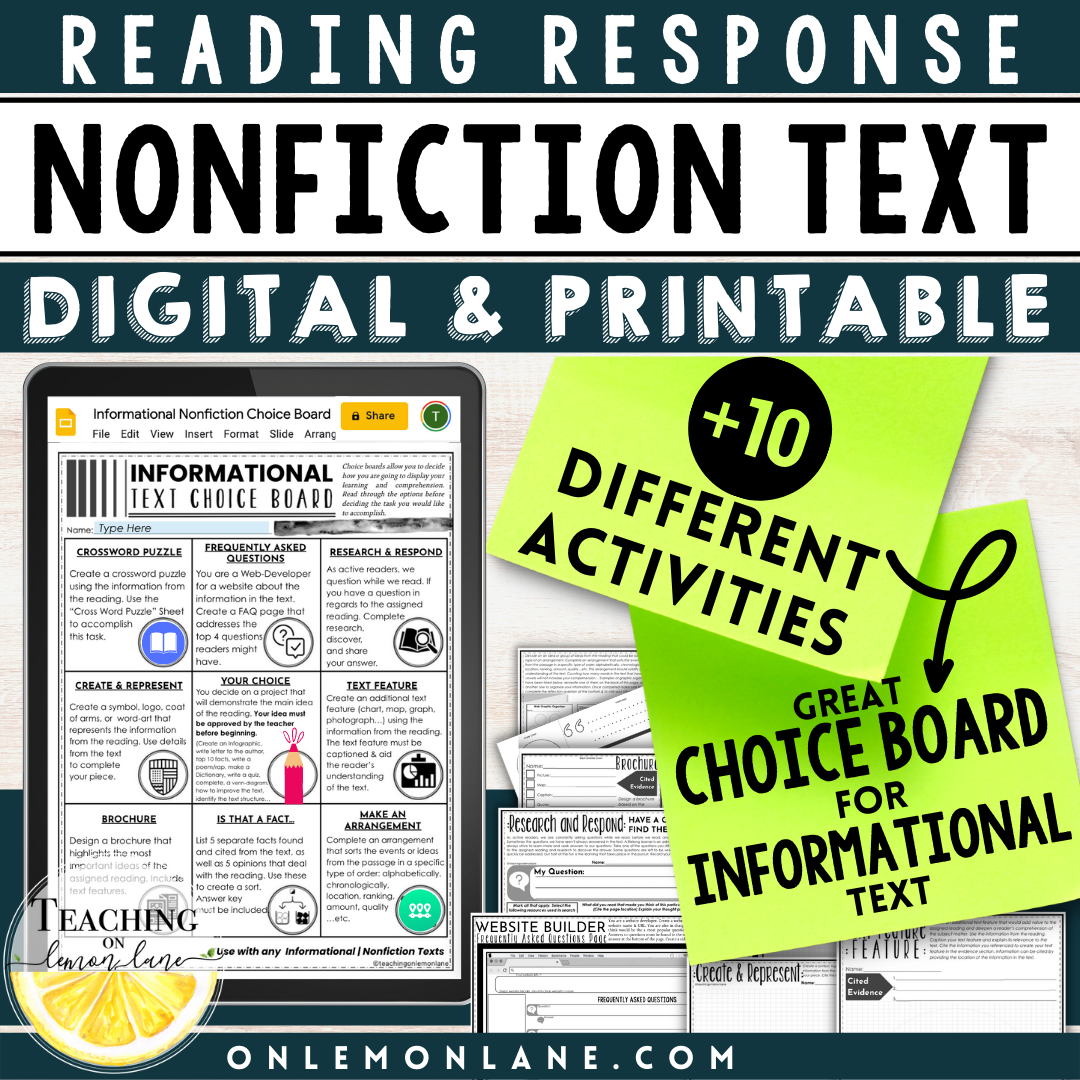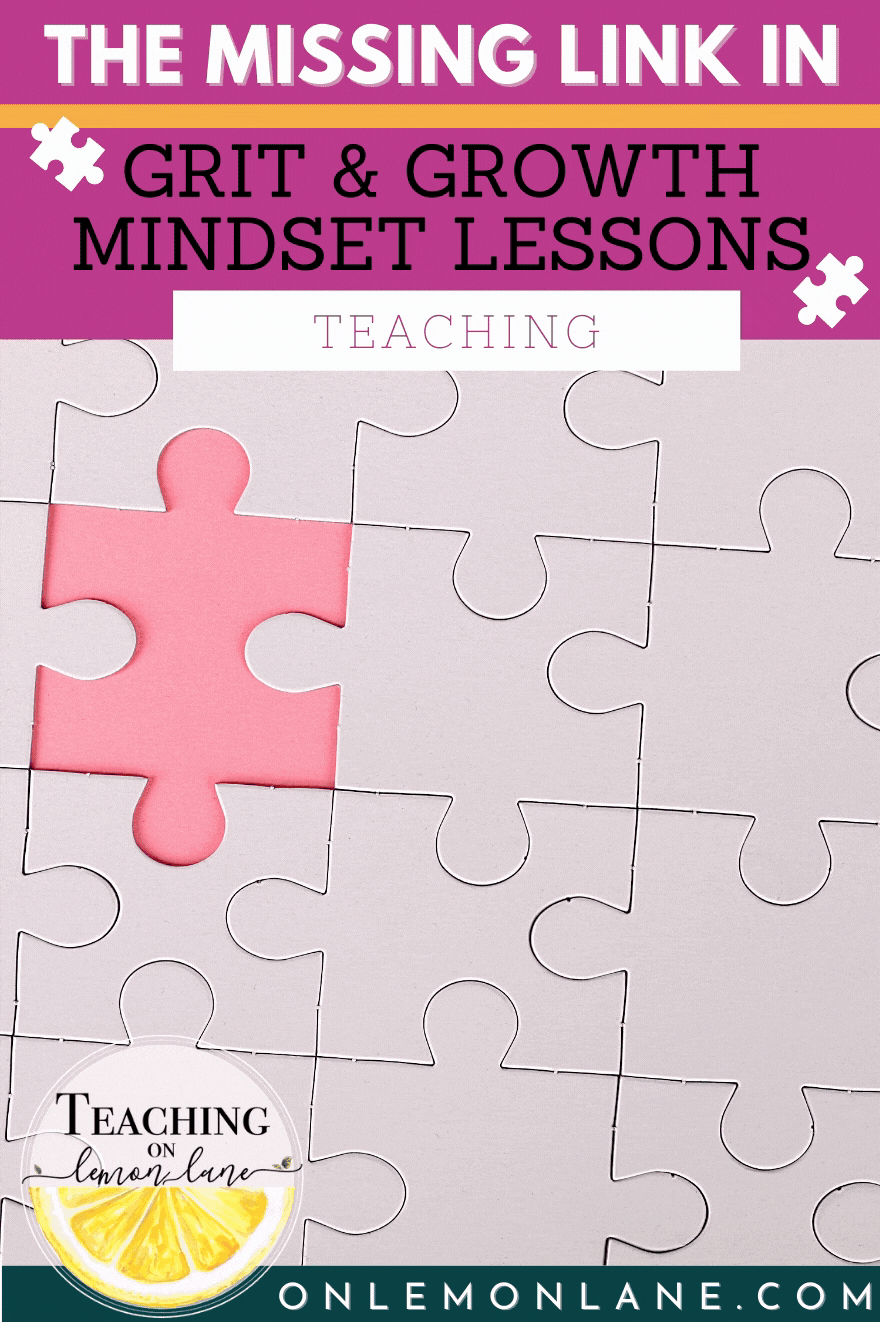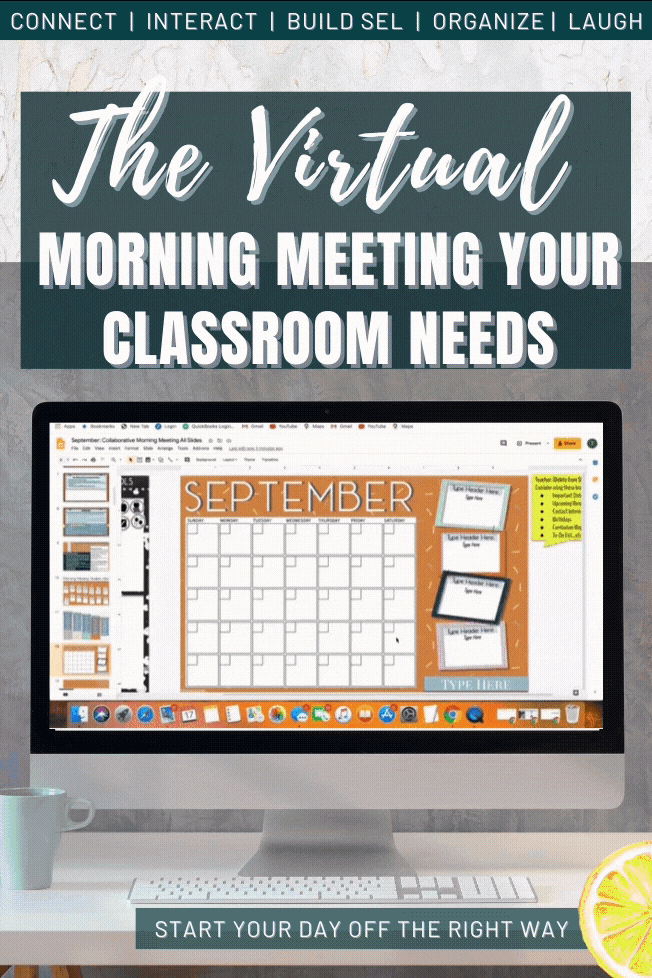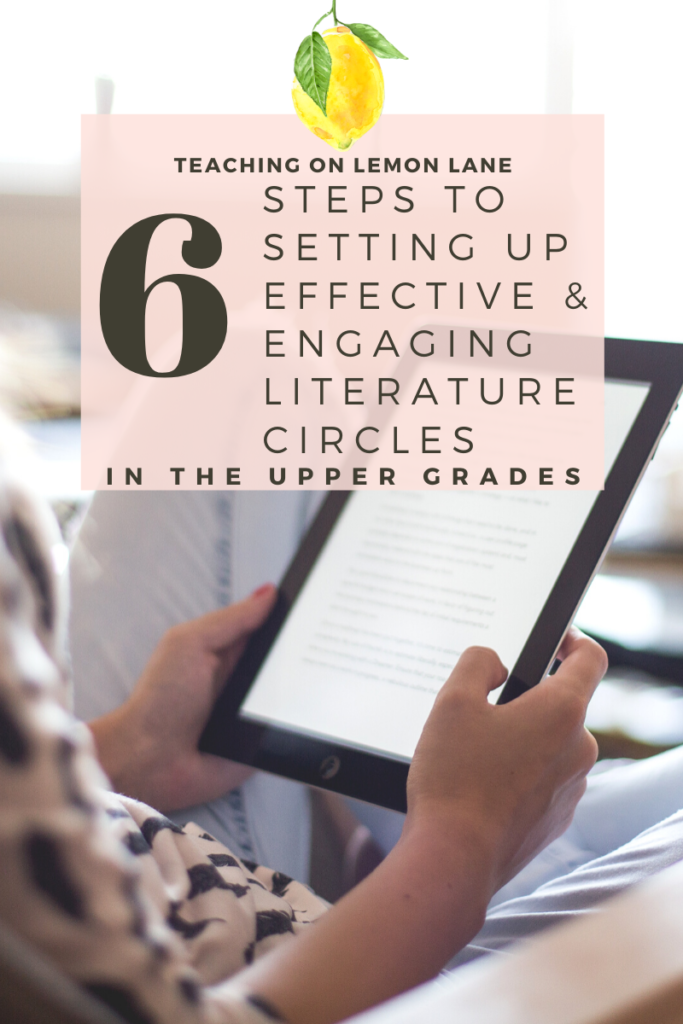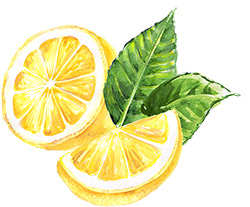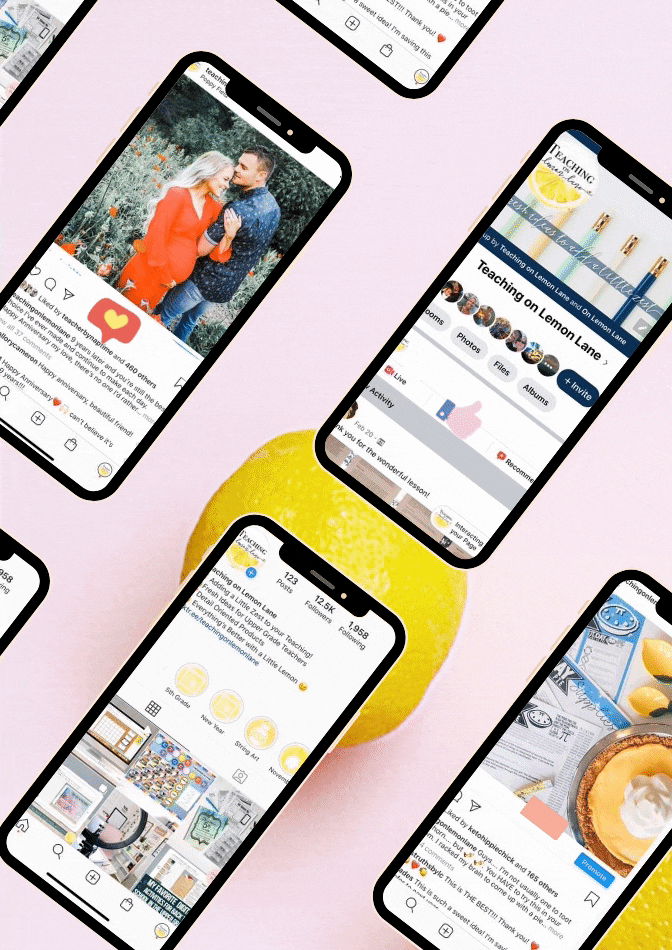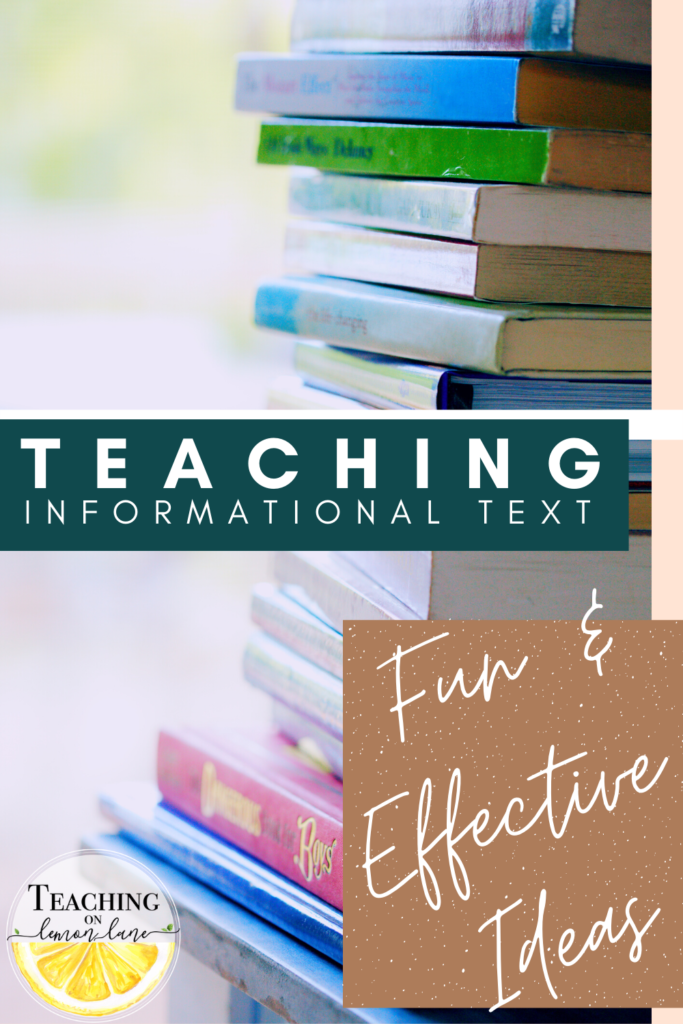
How to teach informational text, nonfiction skills, text features, text structures, in the 4th grade, 5th grade, 6th grade, 7th, grade, 8th grade, and middle school classrooms. Ideas to help students improve their reading comprehension in nonfiction texts, finding the main idea, authors purpose, or using vocabulary terms. Using nonfiction picture books to teach text structures. Graphic organizers for teaching nonfiction.
Before we dive into my philosophy in regards to teaching Nonfiction or Informational text skills, I wanted to make sure you knew about TWO, awesome FREEBIES I have that I think you will LOVE.
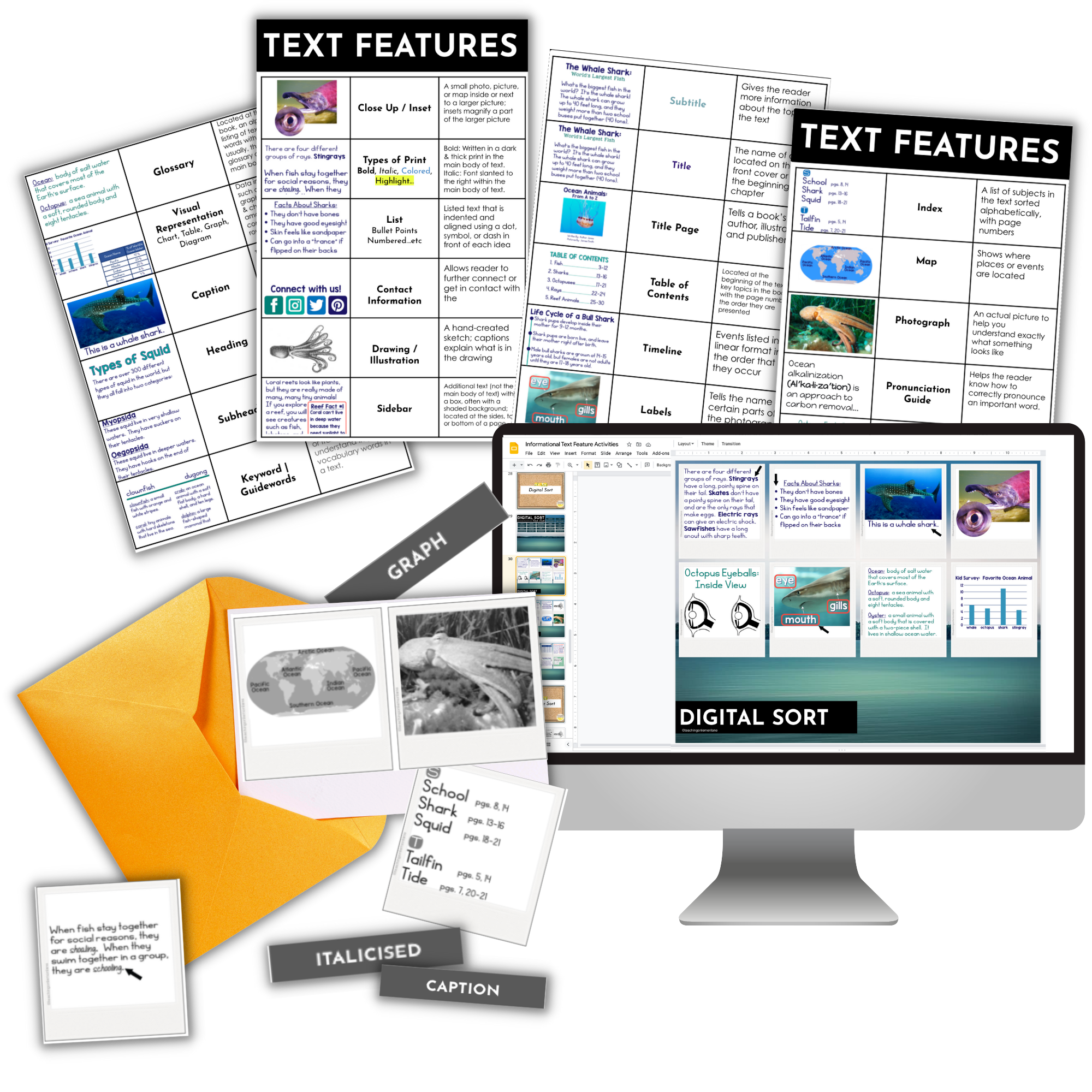
Click Here for my Text Feature Freebie
Start any conversation about teaching nonfiction or informational texts and you can almost guarantee groans will follow.
Often the groans will be coming from both the teacher and the students….
I’m not sure what it is but I actually LOVE teaching nonfiction text in the classroom. My hope is by the end of this blog post, you will too.
Before this can happen we need a shift in our mindset.
I’m willing to bet, that if we were to do a word association activity where I say a word and you say the first word that pops in your head, (example: I say Peanut Butter, you say Jelly…etc.)
That if the word were: NONFICTION
Your response would likely be…
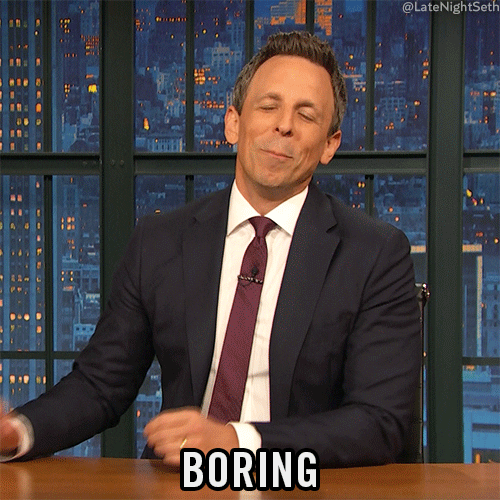
If this were the case… You would technically be right!
More often that not, nonfiction or informational text in the classroom IS boring.
**Cue the dry curriculum text books, or leveled reading passages…etc.
BUT. To say ALL nonfiction is boring simply isn’t correct.
Consider all the versions of informational text you engage with daily…
- Facebook Ads
- Instagram posts
- Articles about the latest Celebrity Gossip
- Emails
- Product descriptions or reviews while shopping online
- Documentaries on Netflix
- Headlines on the magazines at the grocery store
- Comparing and contrasting nutritional labels
- Reading a Recipe
- ESPN Sports Center
- Your creepy True Crime Podcast 😜
- THIS blog post
- …etc!
We are SURROUNDED by information.
Understanding and comprehending informational is a life skill.
As humans we LOVE new information, IF that information is something we are invested in.
So how do we engage our students and make teaching nonfiction skills less groan-worthy…
For me, the answer is REALLY simple.
The skill, must be paired with engaging information worth investing their time in.
Now before you throw out the baby with the bathtub.
I want you to consider the books that are most loved in the library, or if you are a first year teacher think of the books you loved as a child.
I don’t know about you, but the books that were most loved in my classroom were the books filled with incredible information, not just great stories and plots.
As a kid, my FAVORITE book to look through was a kid version of an encyclopedia.

For you younger, hip teachers, (I love you please don’t think I’m old 😅 haha) An encyclopedia was like google as a book, better yet wikipedia in text form…. 🤣
I’ve aged myself…
When you think of nonfiction think of THESE books, many you and your students likely already have access to!
- Guinness Book of World Records
- National Geographic’s: Cutest Animals on the Planet
- Who Would Win Books
- National Geographic’s: Awesome facts about Everything
- National Geographic’s: Weird but True Facts
- Try This Science Experiments
- Don’t Read this Before Dinner: Gross Facts
- The Most Deadly Animals
- Sports Illustrated: Greatest Athletes of All Time
- Brochures to Favorite Destinations
- Websites to theme parks…
This list goes on and on and on….
PLEASE comment below with your favorite nonfiction text ideas and sources below!
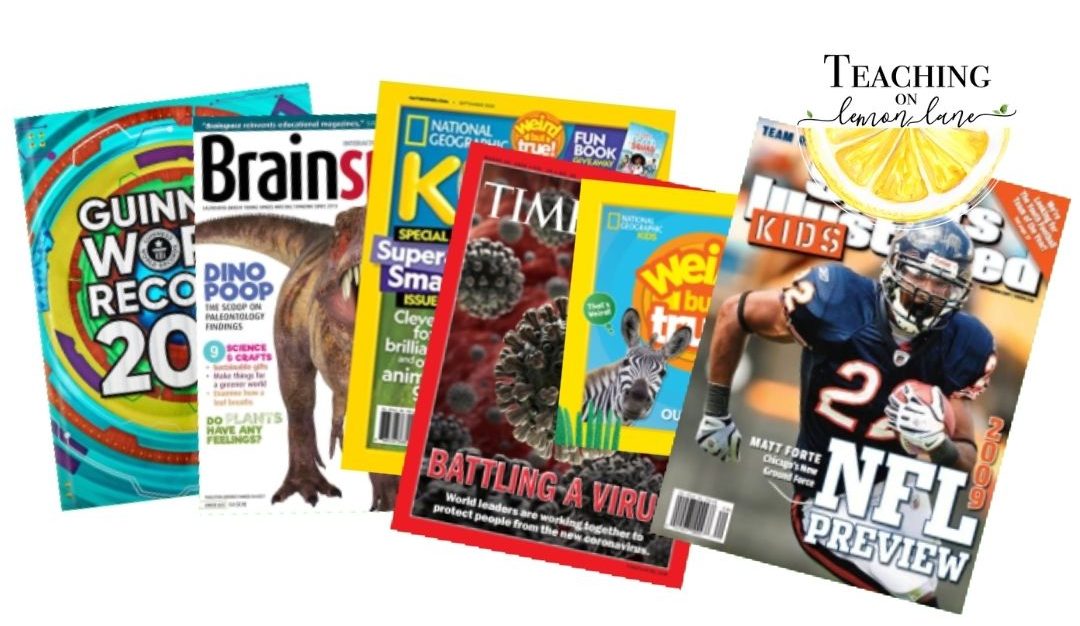
At this point, I hope you are EXCITED about teaching and exploring nonfiction and informational texts in the classroom. If you haven’t caught the vision yet, let me show you what this looks like in my classroom.
My classroom is set up on Literature circles and Guided Reading group rotations. As a teacher we all do something well, this was my thing.
- If you’d like to read more about my literature circles, Click Here.
- If you would like to be notified when my Guided Reading Course opens up, Click Here.
Besides the list of books mentioned above, I will list a few of my favorite resources below for finding relevant, leveled, and engaging informational and nonfiction passages that students actually want to read:
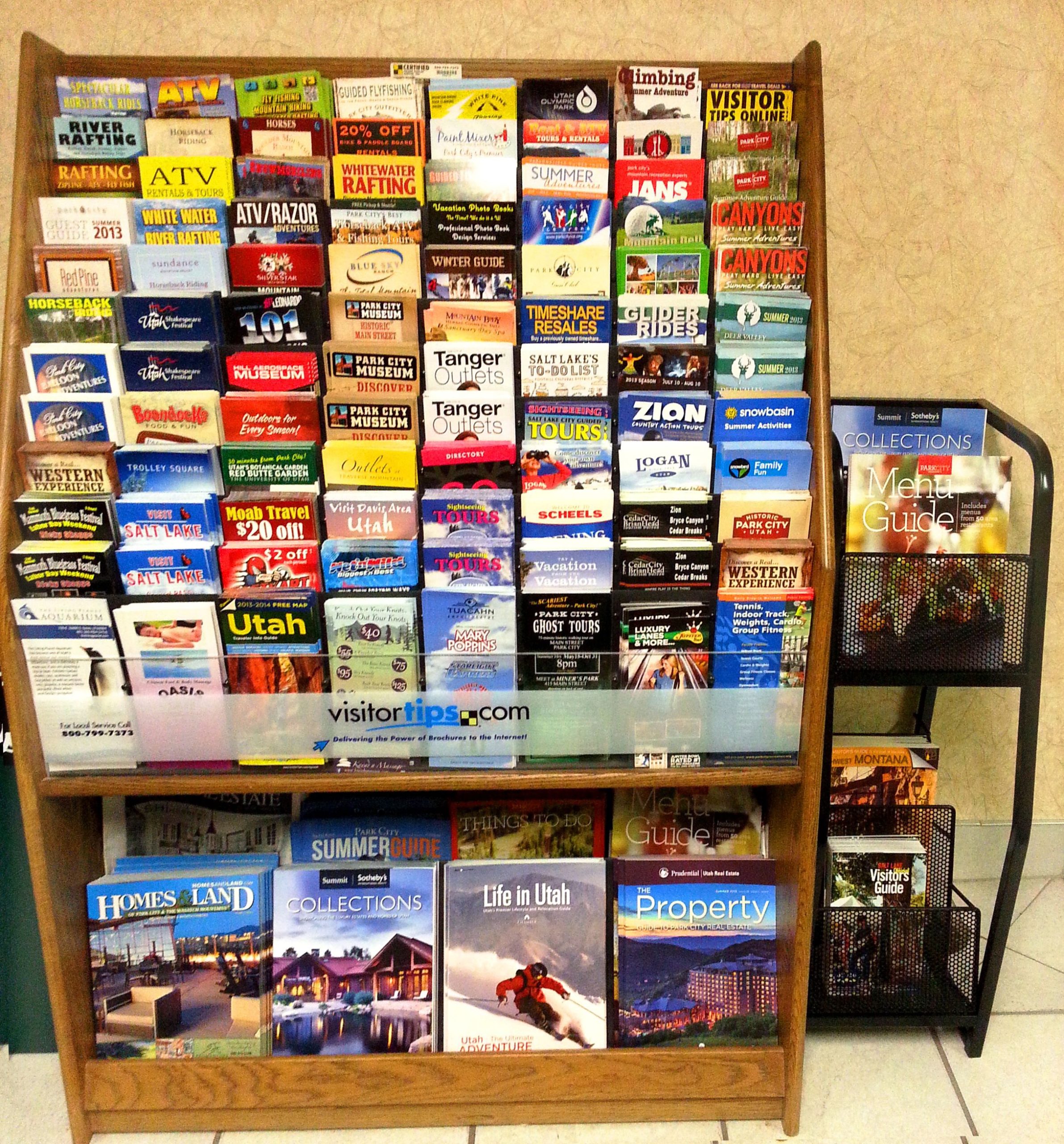
While on vacation, students are encouraged to collect travel brochures to share with the classroom.
TEACHER TIP:
Another fun way I incorporate nonfiction texts in the classroom in a fun way is by collecting travel brochures. Any time I travel or a student travels, we collect our favorite brochures. We display those brochures on a magazine rack. Students LOVE to look through these during free read time. They especially love to share their adventures with the class when they return! This makes things more familiar and exciting when students pick the Create a Brochure activity on their Nonfiction Choice Boards.
My entire product line for teaching nonfiction skills have been built around the idea of pairing it with any form of nonfiction text. Allowing you, OR the student to choose engaging articles, videos, websites…etc that students will WANT to read.

Before we jump in… ALL of these activities can be purchased as a bundle. If you’ve been here long, you know that along with high-quality freebies… We will get to those 😘 I also love to offer high-discount BUNDLES. So high TPT actually warns me about my discounts. 😅 If you want to try them all, I want you to be able to justify trying them all! There are few things that make me as happy as seeing my products in your classroom!
Best Seller: ✨Informational Text Breakdown✨
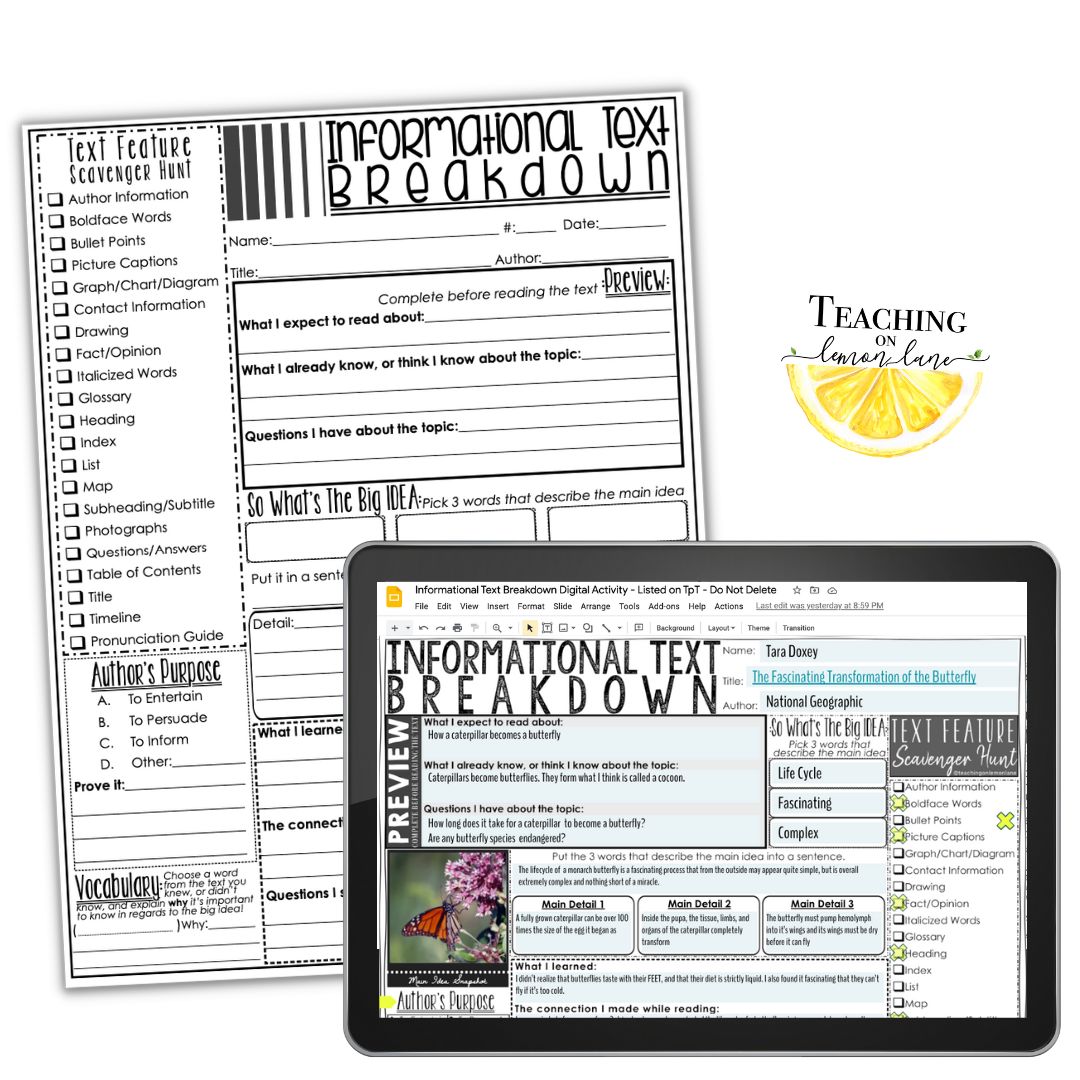 This is one of the first activities I ever uploaded to TPT, and it quickly grew to, and continues to be one of my best-sellers. I wanted a single page that included important activities that students could complete every time they read a nonfiction text.
This is one of the first activities I ever uploaded to TPT, and it quickly grew to, and continues to be one of my best-sellers. I wanted a single page that included important activities that students could complete every time they read a nonfiction text.
✅ Don’t Forget to Snag My FREE Text Feature Sort, and Anchor Charts HERE
Teachers love to use this page WEEKLY, with fun classroom magazines like Time for Kids, Scholastic in their centers, or in their emergency sub-plan binders. The graphic organizer ensures great, meaningful practice, and an increase in student’s nonfiction reading comprehension. This activity is EASY to differentiate based on what you pair it with, because of this teachers have used this successfully in grades as low as 4th, all the way up to 12th grade!
These Informational Text Summary Activities are ALL on a single page:
Pre-Read Section:
- Prediction
- Activate Schema
- Ask a Question
Reading Response Section:
- Main Idea
- Supporting details | evidence
- Author’s Purpose | text evidence
- Reflection
- Connection to text
- Questions I still have
- Vocabulary
✅ Text Feature Scavenger Hunt Section
Author Information | Boldface Words | Bullet Points | Picture Captions | Graph Chart Diagram | Contact Information | Drawing Fact | Opinion | Italicized Words | Glossary Heading | Index | List | Map | Subheading | Subtitle | Photographs | Questions | Answers | Table of Contents | Title | Timeline | Pronunciation Guide
I’ve also included a fun ROLL A DICE Response sheet that students have LOVED. Click on the preview to learn more 💛
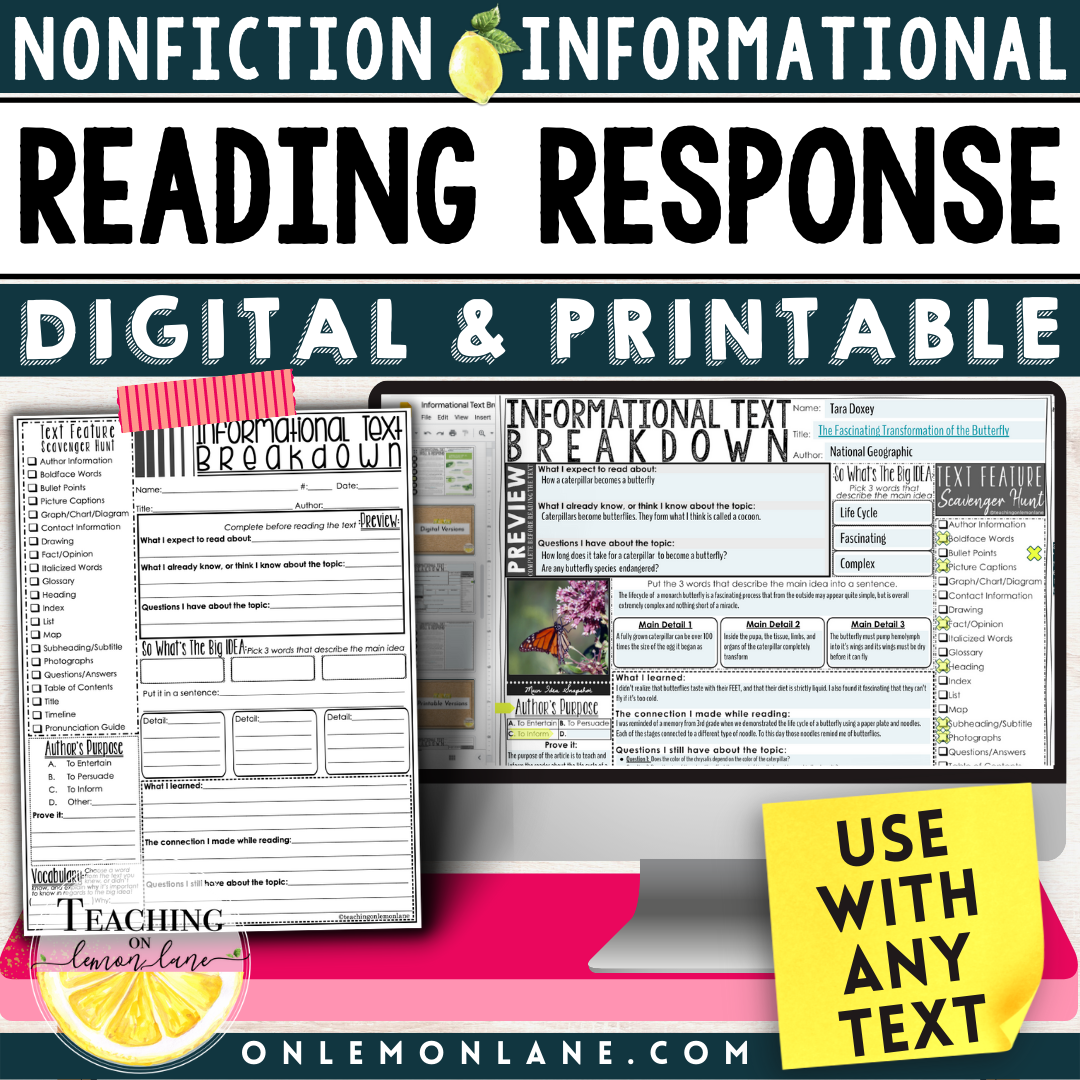
✨Text Structure Breakdown✨
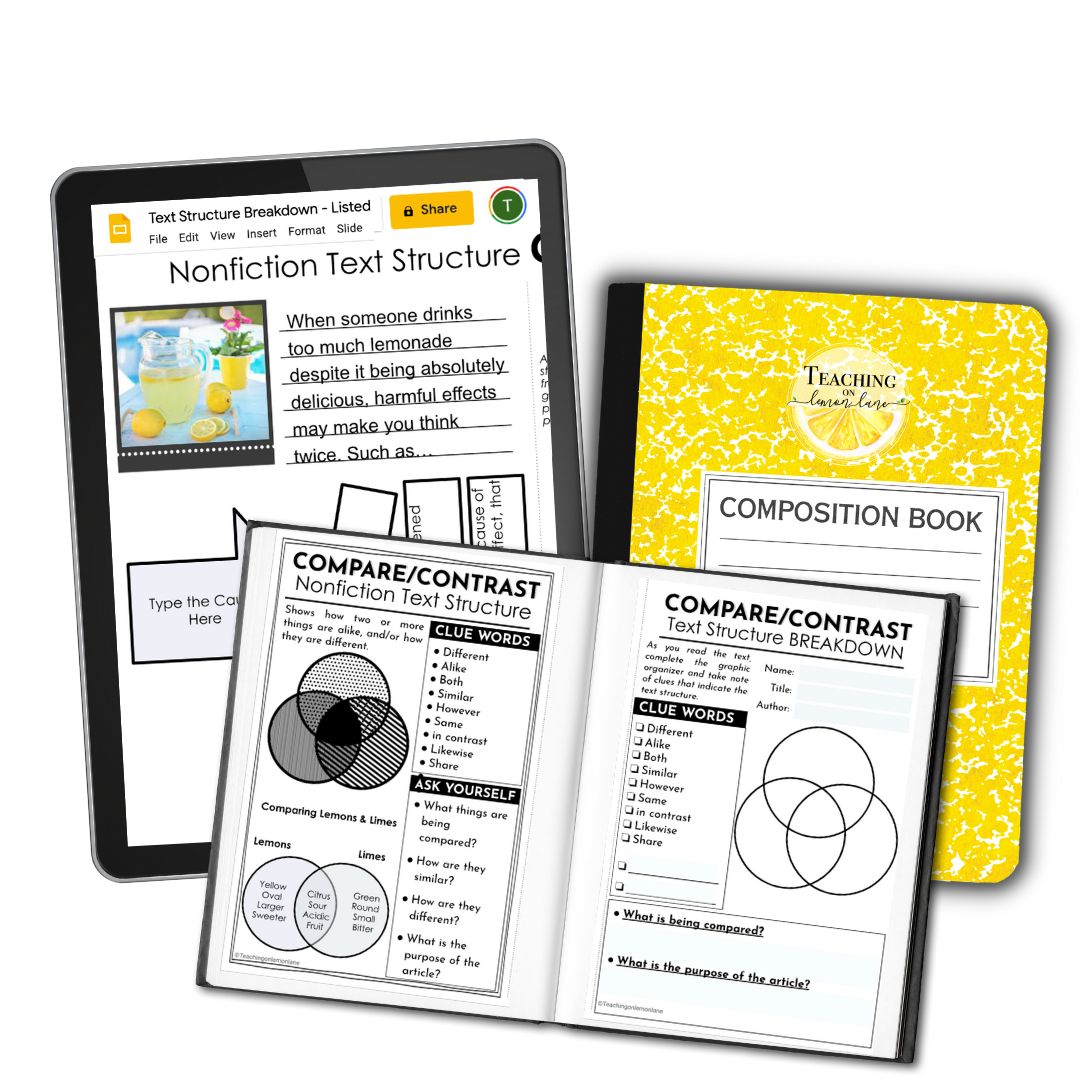
*Text is editable. Complete digitally or as a printable, works great in interactive notebooks. Anchor chart, activity, graphic organizer, video, links to free passages, and picture book recommendations are included for every text structure.
This was created around the same idea of the nonfiction breakdown above. Meaning you can assign it to any nonfiction text, and students will be guided through the graphic organizer to determine which text structure is being used. Before students get to that point though I’ve created editable anchor charts, activities, to guide them through as well as links to FREE passages using the different text structures, videos, and links to my favorite picture books that model the text structure.
If the thought of picture books in the upper grades seems strange, shift your mindset again.
I LOVE using picture books to model specific skills, in this case text structures.
It allows you to briefly cover a broad topic, in a very non-threatening, and engaging way.
✅ Click Here to Shop my Text Structure Picture Book Recommendations
With each text structure I introduce them using the to, with, by model.
Model the structure to my students using the anchor chart & a picture book, I think aloud as I complete the activity.
Next, I do a similar activity with my students using one of the linked passages to the text structure. This time we complete it together (with) filling in the blank anchor chart as we go.
Finally, I assign students to complete the activity (by) themselves, or with a parter using another passage that I’ve linked.
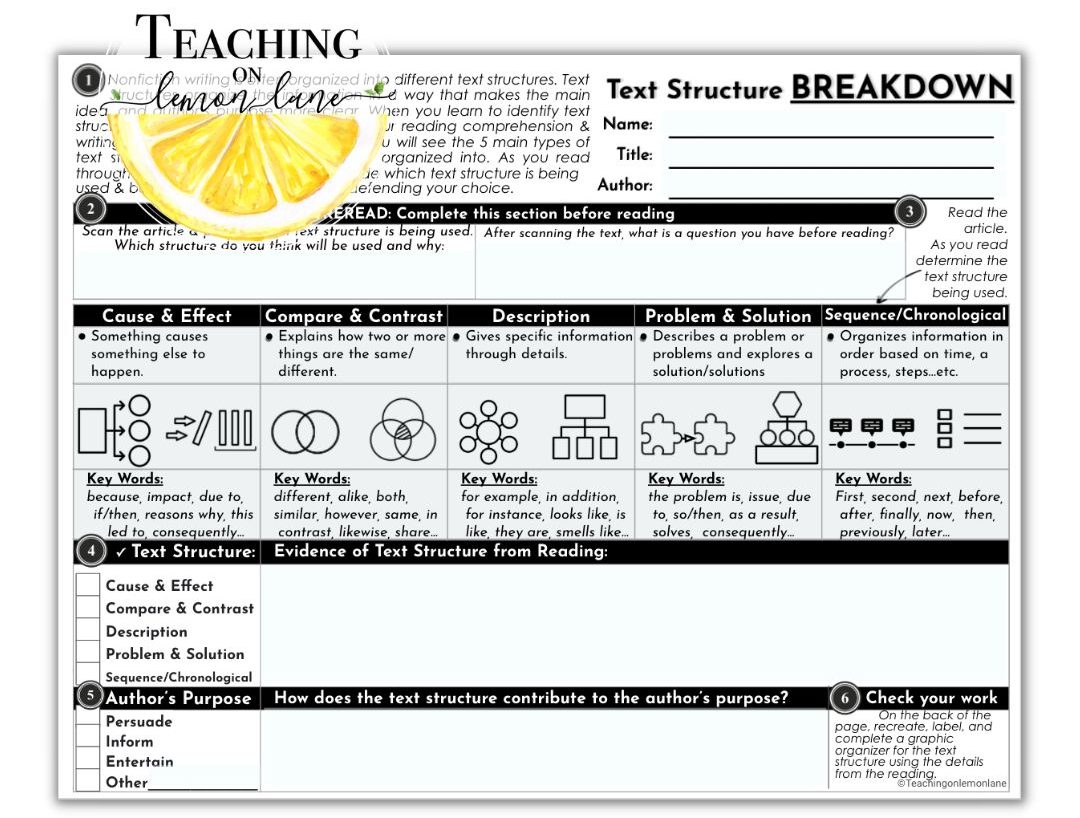
*Text is Editable: Students pair any nonfiction text with the graphic organizer to determine which text structure is being used.
By the time we have worked through each text structure using the pattern above, students are excited and ready to try the actual text structure breakdown! ***Again, the Text Structure Breakdown allows you to pair it with ANY nonfiction text, (your choice, or students) Students work through the graphic organizer to determine which text structure they think is being used, the author’s purpose, and they must back up their thinking with evidence though the text.
🍋 FREE TEXT STRUCTURE SORT 🍋
Click Here for the FREE Text Structure Sort
I also wanted to create a fun and FREE Text Structure sort! This text structure sort can be assigned digitally, or print it out and complete it like a puzzle! I recommend using the sort as a pre & post assessment at the start and end of your text structure unit.
Click on the button above for the Text Structure Sort, *Different from the Text Feature Sort, to be sent straight to your email!
✨Nonfiction Text Choice Board✨
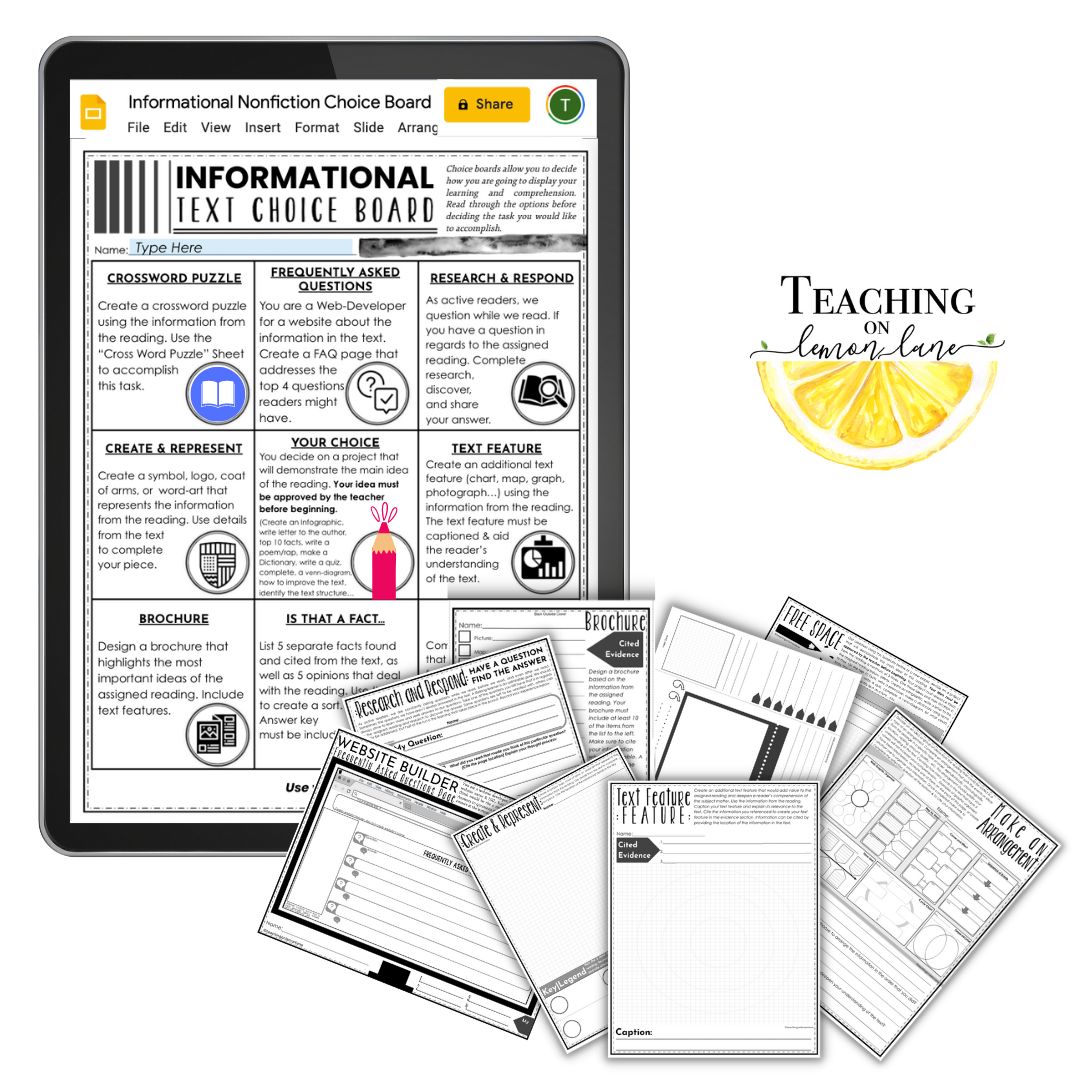 Finally, we have the Nonfiction Text Choice Board activities that again, can be used with ANY nonfiction text.
Finally, we have the Nonfiction Text Choice Board activities that again, can be used with ANY nonfiction text.
One of my favorite ways to ensure and increase student engagement in the classroom is through student choice.
By allowing students to choose, they are given a voice in their learning, thus bringing more accountability.
I love the choice boards because students can pick the activity AND the article, or you can assign the article, but they get to decide how they want to respond to it.
Each activity can be completed digitally or as a printable and will help students’ reading comprehension as they complete each activity!
This Informational Text Choice board includes the following nonfiction activities: (Digital & Print)
**Activities work independently as a standalone from the Choice Board
- Fact vs. Opinion Sort | Foldable
- Create a nonfiction Crossword Puzzle: Design a puzzle based on text
- Nonfiction Book Report Brochure | Design includes Text Features
- Design a Symbol or Infographic based on reading
- Create a new Text Feature using information from text
- Research a question you have after reading and respond
- Web Designer: Create a Frequently Asked Question page based on the reading
- Make an Arrangement: Sort and Organize Information from Reading
Phew! We made it.
I hope at this point you are feeling more energized and excited about teaching nonfiction text in a fun and engaging way!
I would LOVE to hear from you in the comments below.
Do you have a favorite resource for finding informational texts?
Can you think of another form of informational/nonfiction text that we engage with daily that I didn’t list?
Do you use my resources in your classroom? I would LOVE any of your tips or tricks for how you implement them.
Do you have any questions? Comment below, I LOVE to hear from you 😀
Thanks again friends, until next time 💛
Like this? Make Sure to Check Out These! 🍋Freebies Included🍋
Click on the image to learn more
Free Informational Text Survey COMING SOON: Comment below if you would like the link!
- What I Want to learn about, why I want to learn about this
- What I want to learn how to do, Why
- Places Id Like to learn about, why
- Processes I’d like to learn about, why

To stay up-to-date on new blog posts, freebies, exclusive promo codes, and sales… Join the Teaching on Lemon Lane Community! Pick any or all of the following to stay in the loop of all things Teaching on Lemon Lane.
- Follow @TeachingonlemonLane on Instagram
- Like Teaching on Lemon Lane on Facebook
- Join our exclusive Teaching on Lemon Lane Facebook Group
- Sign-Up for our Monthly Newsletter: No Spam, only make your life easy-peasy, lemon-squeezy goodness… Promise.
If you enjoyed this PLEASE SHARE! Sharing on Pinterest, Facebook, or tagging on Instagram is a simple, yet wonderful way to support the efforts of Teaching on Lemon Lane!
